Ductless HVAC systems, known for their efficiency and versatility, are becoming increasingly popular among homeowners in Milwaukee County. Whether you’re considering an installation or already own a ductless unit, understanding the specific jargon associated with these systems is crucial.
Explore the key terms that you, as a Milwaukee homeowner, should be familiar with to ensure you can effectively communicate with professionals from Burkhardt Heating & Cooling and make informed decisions regarding your home’s heating and cooling. From basic concepts like “Mini-Split” to more technical terms such as “Inverter Technology,” this guide will navigate you through the complexities of ductless HVAC systems. Empower yourself with knowledge and optimize the comfort and efficiency of your home environment with our expert insights.
Understanding Ductless HVAC Systems
1. Mini-Split and Multi-Split Systems
At the core of understanding ductless HVAC systems are the terms “mini-split” and “multi-split.” Mini-splits consist of two main components: an outdoor compressor/condenser and an indoor air-handling unit. They are connected by a conduit that houses the power cable, refrigerant tubing, suction tubing, and a condensate drain. Multi-split systems are similar but allow multiple indoor units to connect to a single outdoor unit. This flexibility makes the multi-split system ideal for homes without ductwork and for room-specific heating and cooling.
2. Heat Pump
A heat pump in a ductless system refers to a device that transfers heat energy from the outside air into your house during winter and vice versa during summer. It is an energy-efficient alternative to conventional HVAC systems like furnaces and air conditioners because it uses electricity to move heat rather than generating it internally.
Key Components and Functions
1. Inverter Technology
Inverter technology in ductless HVAC systems controls the speed of the compressor motor to continuously regulate the temperature. By operating at varying speeds, the system works only at the needed rate, making it more energy-efficient than conventional systems that operate at a constant speed. This technology not only helps in reducing energy consumption but also maintains a more stable room temperature.
2. Air Handler
In a ductless system, the air handler is the indoor component that distributes warm or cool air into the room. Unlike traditional forced-air systems that use a network of ducts, each air handler is dedicated to one room or space. Installation typically involves mounting the unit high on a wall or ceiling, which helps save space while providing effective air distribution.
3. Refrigerant Lines
These are essential for the operation of ductless HVAC systems, transporting the refrigerant necessary for heating and cooling between the outdoor compressor and the indoor air handler. The lines are insulated to prevent energy loss and ensure efficient system performance.
Installation and Maintenance Insights
1. Zoning Capabilities
Ductless systems excel in zoned heating and cooling solutions. Each air handler can be controlled independently, allowing you to create different climate zones in your home. This is particularly beneficial for areas requiring different temperature settings or for family members with different comfort preferences.
2. Professional Installation
While ductless systems are known for their relative ease of installation compared to traditional HVAC systems, professional installation is crucial. This ensures correct sizing and placement of units, optimal refrigerant levels, and secure connections—factors that critically affect system performance and longevity.
3. Regular Maintenance
To keep your ductless HVAC system running efficiently, regular maintenance is essential. This includes cleaning filters and checking for leaks in the refrigerant lines. Annual inspections by a professional can help ensure all components are functioning properly and efficiently.
Troubleshooting Common Issues
1. Clogged Filters
Like any HVAC system, ductless models can suffer from airflow issues due to clogged filters. Regular cleaning or replacement of filters is necessary to maintain air quality and prevent strain on the system, which can lead to increased energy consumption and reduced lifespan.
2. Drain Line Issues
Another common issue is blockages or leaks in the condensate drain lines, which can cause water to back up and damage the system or your home. Keeping these lines clear is essential for the system’s proper function.
3. Refrigerant Leaks
Refrigerant leaks not only reduce the efficiency of a ductless system but can also pose environmental hazards. Detecting and repairing leaks early by a professional is crucial to the system’s health and operational efficiency.
Ensure Optimal Comfort with Expert HVAC Services
Understanding the ins and outs of ductless HVAC systems equips you with the knowledge to maintain a comfortable and efficient home environment. Whether you’re considering an upgrade to a ductless system or looking to enhance the performance of your current setup, recognizing how to address common issues and the importance of professional installation and maintenance can significantly elevate your home’s comfort levels.
If you’re in Milwaukee County and need expert advice or services related to ductless HVAC systems, Burkhardt Heating & Cooling is here to help. Our experienced team provides HVAC services in Milwaukee are tailored to meet your specific needs, providing you with reliable and efficient climate control. Contact us today to learn more about how we can help you maximize the comfort and efficiency of your ductless HVAC system. Let’s work together to create a healthier and more comfortable home environment!












